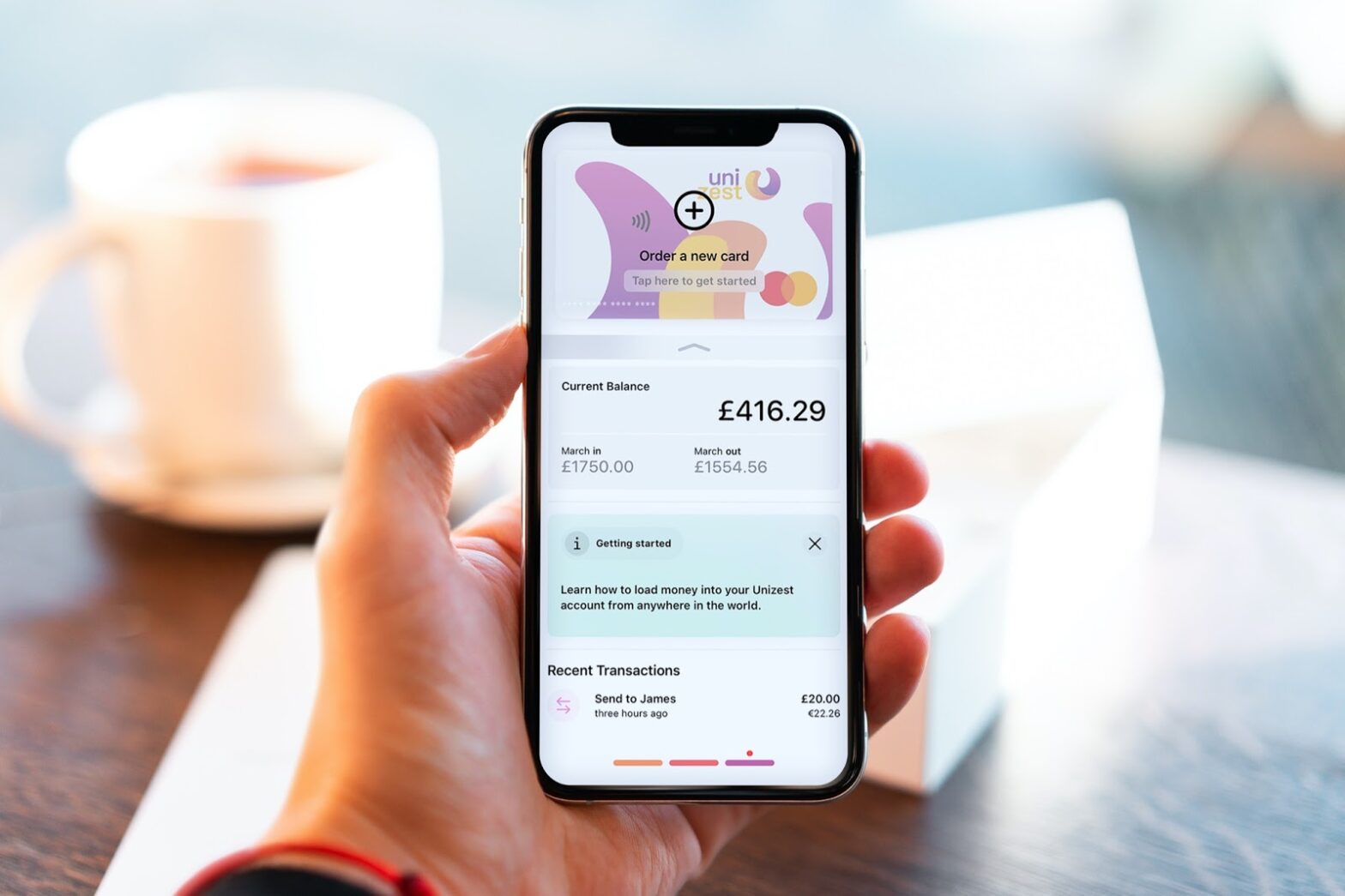Thousands of foreign students and migrant workers are deterred from coming to Britain because of the difficulty of obtaining a UK bank account. Often you need a UK bank account to rent somewhere to live or have your earnings paid into it, yet the rigmarole involved in setting up with a high street bank is off-putting.
Matt Oldham, CEO of Unizest, has created an e-account for overseas workers and students coming to Britain. It solves a huge problem for recruiters of the 1.5m contingent workers who come to the UK each year.
Although it hasn’t even launched yet, the Unizest team have been handpicked as one of eight winners in the latest round of The Start-Up Series Competition, sharing £1.1m between them.
Where did the idea for Unizest come from? What is the problem that it’s solving?
The idea came from some work that Tony Shawcross, one of our co-founders, and I were doing with one of our clients at the time, a large CRM organisation working in the recruitment space. They framed the challenge they had getting non-UK workers seamlessly into Britain. The problem they encountered was that it was very difficult for those workers to get a UK bank account if they didn’t have UK residential history. And that causes problems for both recruiters and individuals themselves. It was causing delays and friction.
When we dug deeper, we discovered it was the same problem for quite a number of other pockets of users, such as international students, who often need to set up payments for things like accommodation before they actually start their courses.
Unizest is a basic UK e-account that’s very easy for non-UK residents to get. They can even apply and set up their account before they leave their home country. And once they get here, we can issue them with a Debit MasterCard and their account is ready for them from day one.
>See also: The Start-Up Series competition – over £1 million invested in latest winners
You started having conversations about Unizest 18 months ago. When did you actually launch?
We haven’t actually launched yet. We plan to go live in June. We set up the company almost exactly 12 months ago. We got our heads together and worked out what the problem was about six months before going out and validating our thinking by talking to people in the recruitment space.
Over the last year, we’ve been gearing up in terms of setting up the technology and getting ready to launch properly. That process has taken 12 months since we first incorporated the business.
With all these new barriers between the UK and the rest of Europe, has Brexit actually helped your business?
I wouldn’t go as far as to say that Brexit’s helped. It’s probably neutral. There’s always been an inflow of labour from overseas, dating back hundreds of years. That’s not going to stop. So let’s wait and see if those patterns change.
For example, international students are essential for higher education. And by far the biggest overseas country in terms of students coming here is China. In 2019, there was about 220,000 Chinese students in Britain, which was clearly unaffected by Brexit.
As mentioned, we first started having serious discussions about Unizest about 18 months ago. And that was obviously before Covid. At the time, we were talking to recruiters about large-scale construction projects, which clearly haven’t materialised because of the current economic situation.
However, other pockets of demand are still there, and growing. For example, there’s been a huge growth in the need for adult care workers. And there are other sectors that the UK economy doesn’t naturally fill, such as healthcare workers or seasonal agricultural workers, for example. Those roles still need to be filled.
‘People aren’t coming to the UK to get a bank account, they’re coming here to start a new life’
What made you decide to enter the Start-up Series competition, what was it that appealed to you?
When we saw the criteria and the process, we thought, why not? The actual application process wasn’t particularly paperwork heavy, but it rather focused us as on who we are, what our values are. And that was something we quite enjoyed working on.
Once we got into dialogue with Matthew Cushen and Paul Soanes from Worth Capital, it became much more of a conversation. And it felt collaborative, quite informal. We were also introduced to some previous winners, which was useful, so they could talk about their own experience. It became clear that in in addition to just investment, what the Start-Up Series offered was help, advice and tangible support. That became more and more appealing once we got deeper into the process.
Support and advice became part of the appeal?
When you’re a start-up requiring funding, there are lots of places you can go. As we started to talk to more and more people, it felt obvious to us that, in addition to the money, having a framework and people around would add value as well.
We’ve already started feeling the benefits of it, in that we’ve had some practical help and support in things like developing our value proposition. Having external input is good because you can get a little bit locked into your own ideas. It feels much more like a collaborative partnership.
What advice would you have for any other entrepreneurs thinking about entering the next round of The Start-up Series?
I would say, give it a go. Because there really is nothing to lose. I mean, even if we had not been successful, I think we would feel that the process had been useful in terms of finetuning our story. And we got feedback from experienced entrepreneurs and investors.
Where do you see Unizest in a year’s time? Are there any milestones you want to hit?
Our first milestone will be going live in June. We’re in user-acceptance testing right now, we’re just about to go out into a soft launch phase. And hopefully, we will be live in time for the important summer season when it comes to recruitment, not only for international students, but also for seasonal migrants in the food and agriculture sector.
By July/August, we hopefully will be setting up our first partnerships, which we’re already in dialogue with now.
People aren’t coming to the UK to get a bank account, they’re coming here to start a new life, whether that’s starting a new life at work or in education.
In 12 months’ time, we’re really going to understand a lot more about our customers and what their needs are. In terms of customer numbers, we feel that this is a type of product which will grow through referral. People talking to people back home about their experiences and what they did when they first came over here.
A whole year seems a long way from where we are right now, we’re so busy getting prepared for launch. But I think it’s going to be a really exciting time for Unizest. We’re looking forward to it.
The Start-Up Series competition
The Series opens for applications every month, with the aim to select one or two winners to receive:
• Up to £250,000 of SEIS/EIS equity funding (subject to due-diligence, terms & conditions).
• A minimum of 2 years invaluable hands-on help from experienced & battle-scarred entrepreneurs
• Media coverage on smallbusiness.co.uk & other channels to promote your business & follow your journey.
We are on the hunt for B2B or B2C business across all sectors. As long as your business is eligible for SEIS or EIS HMRC advance assurance, then we’ll consider your application.
We’ll be impressed by innovative products or services, in high growth or underserved markets, with the potential to build a loved brand. If you can demonstrate these, you’re in with a fighting chance.
Because the investment will come from an EIS & SEIS FCA regulated fund, businesses who are considering entering need to satisfy the following criteria set by HMRC:
• You must be a UK resident and run a UK-based business
• You must be over 18 years old at the time of entry
• Certain financial services and property businesses are unlikely to qualify.
Find out how to enter The Start-Up Series here








